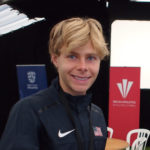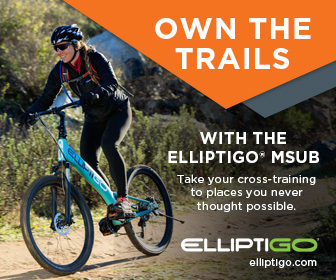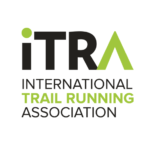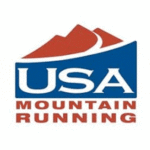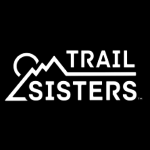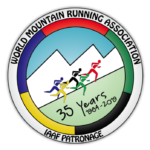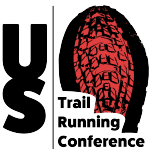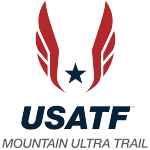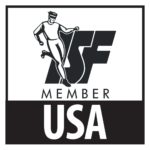
The tenth annual US Trail Running Conference was held at the Rosehill Community Center in Mukilteo, WA, October 19 to 22, 2022. Race directors from around the United States and internationally, brands, trail runners and influencers gathered to learn and share their knowledge on how to progress the sport of trail running in new directions of sustainability, diversity and better business practices.
The 2022 conference attracted individuals who push boundaries and take the extra step to make positive changes in their communities. Listed below are just a few (of many) attendees making large impacts in our sport in ways of increased participation, inclusion, sustainability and much more:
- Steven Aderholt, race director of the Cocodona 250, is pushing the boundaries of race media and shared his commitment to produce a 125-hour livestream of this year’s event.
- Craig Thornley, race director of the Western States 100 Mile Endurance Run and his race committee organized Transgender policies for the event, helping pave the way for other American races to do the same.
- Amy Ben-Horin of Wander Project has helped events raise money through charity bibs for organizations such as Bigger than the Trail and Rising Hearts that promote mental health and diversity.
- Zoë Rom of Trail Runner Magazine tells women’s stories on trails and is empowering women in trail running media through writing, video and photography.
- Shannon Woods of Brooks Running is promoting Diversity, Equity and Inclusion (DEI) and helping put BIPOC communities in positions of leadership within the running industry.
- Zach Friedley, professional runner sponsored by On Running (and adaptive athlete) organized the first adaptive-athlete specific trail run, Born To Adapt, at the Born To Run trail running event in April 2022.
- Mikah Meyer traveled for three years visiting all 423 National Parks Service Sites, raising awareness and creating safe space in the outdoors for the LGBTQ+ community.
- Porter Bratten of Evergreen Trail Runs and Orca Running uses carbon offsets in his events to raise money for renewable energy sources including a wind farm in South Dakota.

Photo: Peter Maksimow.
Why Are We Here?
The US Trail Running Conference was a great place for race directors, brands and other trail running enthusiasts seeking to make positive change in our sport and learn how to grow events not just in terms of participation, but also diversity, sustainability and community. Whether attendees were new or experienced to trail running, the conference was a great place to network and learn. Watch the following video to hear of few of the reasons attendees came out to this year’s conference:
Conference Recap
The focus of the 2022 US Trail Running Conference was building “Business and Community.” This theme inspired a wide variety of discussion panels with topics including “How To Grow Your Race—In Runners and Reputation, “Diversity—Focus on BIPOC,” “Diversity—Focus on LGTBQ+,” “Moving the Sport to Carbon Neutral,” “Diversity—Born To Adapt.”
The conference began with a powerful “Opening Circle,” which paid respects to the Native Snoqualmie, Snohomish, and Skyqualmie peoples of this region. Following the circle was a keynote speech given by running and life-coach, motivational speaker, published author and ex-marine, Morgon Latimore. Read more on my personal reflections from these opening events at the 2022 US Trail Running Conference in my article from last week.

Photo: Peter Maksimow.
In addition to panels were several other key presentations and interactive activities including “Business Coaching Session—Actions For Business Impact, Turning Strategy Into Actions,” presented by Paul Jurasin of the Cal Poly Digital Transformation Hub“ and “A Journey From Ordinary To Extraordinary” talk given by LGBTQ+ activist Mikah Meyer.
New to this year’s conference were two “Big Pitch” sessions where sponsors stepped up to support race directors making large impacts in their communities and for the environment. Darn Tough Socks awarded $5,000 to Lorrie Mittmann of Peninsula Adventure Sports as the “Trail Running Community Champion.” Second place, Michele Hartwig, was awarded $1,000 and third place Ashley Gora Owens, of Big Sur Land Trust’s Race For Open Space, earned a sock partnership. Brooks Running awarded $5,000 to Scott Sowle, owner of Mountain Running Races, as the “Climate Champion of The Trail Running Community.” Second place Paulette Odenthal, of Run The Ritter, was awarded $2,000 and third place Peter Downing, of Suffer Better, was awarded $1,000.

Photo: Tayte Pollmann.
Words Of Change
This year’s conference offered a welcoming space to discuss some of the toughest topics in our sport, including the lack of diversity and increasing environmental concerns. Speakers raised discussion about how as our sport continues to grow, the industry should be doing more to ensure the inclusion of more diverse communities (women, BIPOC (black, indigenous and people of color) and the LGBTQ+), as well be focusing attention on reducing carbon emissions from events and increasing our protection of the natural spaces where trail races are held.
Listed below are a few “nuggets of wisdom” from attendees on these topics during various discussions throughout the conference:
WOMEN:
“We have been snatching up lower hanging fruit in terms of female equity in this sport and getting more women on trails. Making bigger, more impactful changes is more difficult…My not-so-easy solution is that we need to be taking childcare more seriously from a political standpoint.” –Zoë Rom, Editor in Chief, Trail Runner Magazine
“As a professional athlete, I can attest that there isn’t the same kind of exposure given to female athletes on the elite stage. Media crews tend to follow overall race leaders over both male and female leaders. As media exposure in this sport grows, I hope we don’t just celebrate top males and do a better job of promoting the accomplishments of women trail athletes.” –Joe McConaughy, professional athlete for Brooks Running

Photo: Peter Maksimow.
BIPOC:
“The indigenous peoples of this country were the original trail runners of this land, and trail running is already in this culture. This is something that the trail running community should recognize.” –Shannon Woods, senior manager of Diversity, Equity and Inclusion at Brooks Running
LGBTQ+
“We are constantly placing labels on people based on how they look, talk, their color of skin, or what they’re wearing. How can we as a society and industry not make assumptions about runners? What are those assumptions we’re making in our brain and how do we break these practices and become more inclusive?” –Jake Fedoroski, NonBinary Running
“The answer is resources. If you want to diversify your race you have to put the time, energy and money into starting that snowball and eventually it will gain momentum. You can’t just say someone is welcome and do nothing more.” –Mikah Meyer, Run Happy Advocate For Brooks Running

Photo: Peter Maksimow.
ENVIRONMENT:
“When it comes to including carbon offsets at your events, it’s important that participants know their money is actually going to something real. The offset marketplace is growing rapidly and there are more verified projects around the country, making it easier than ever to take action for making more sustainable races and offsetting carbon emissions from putting on events.” –Porter Bratten of Evergreen Trail Runs and Orca Running

Photo: Tayte Pollmann.

